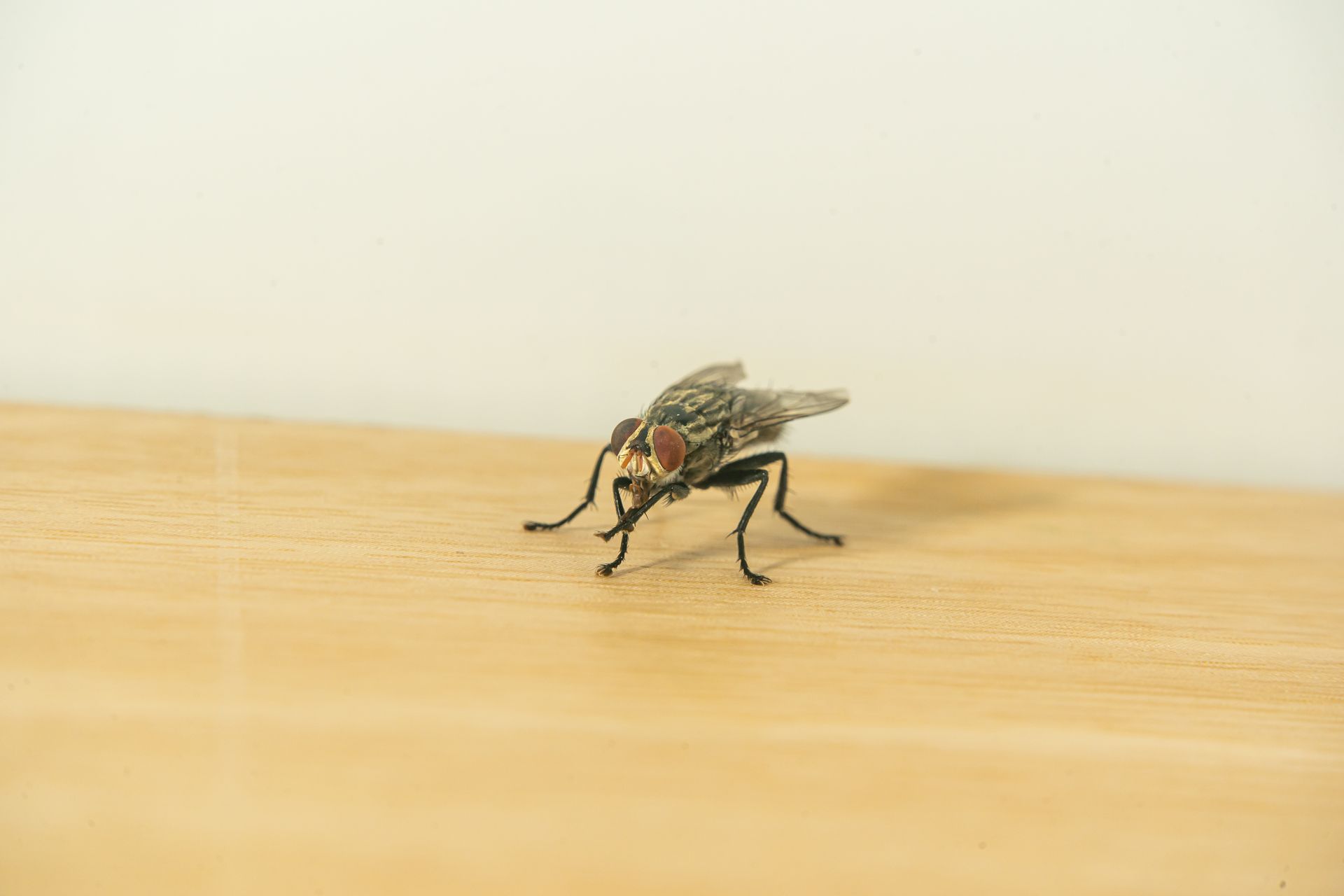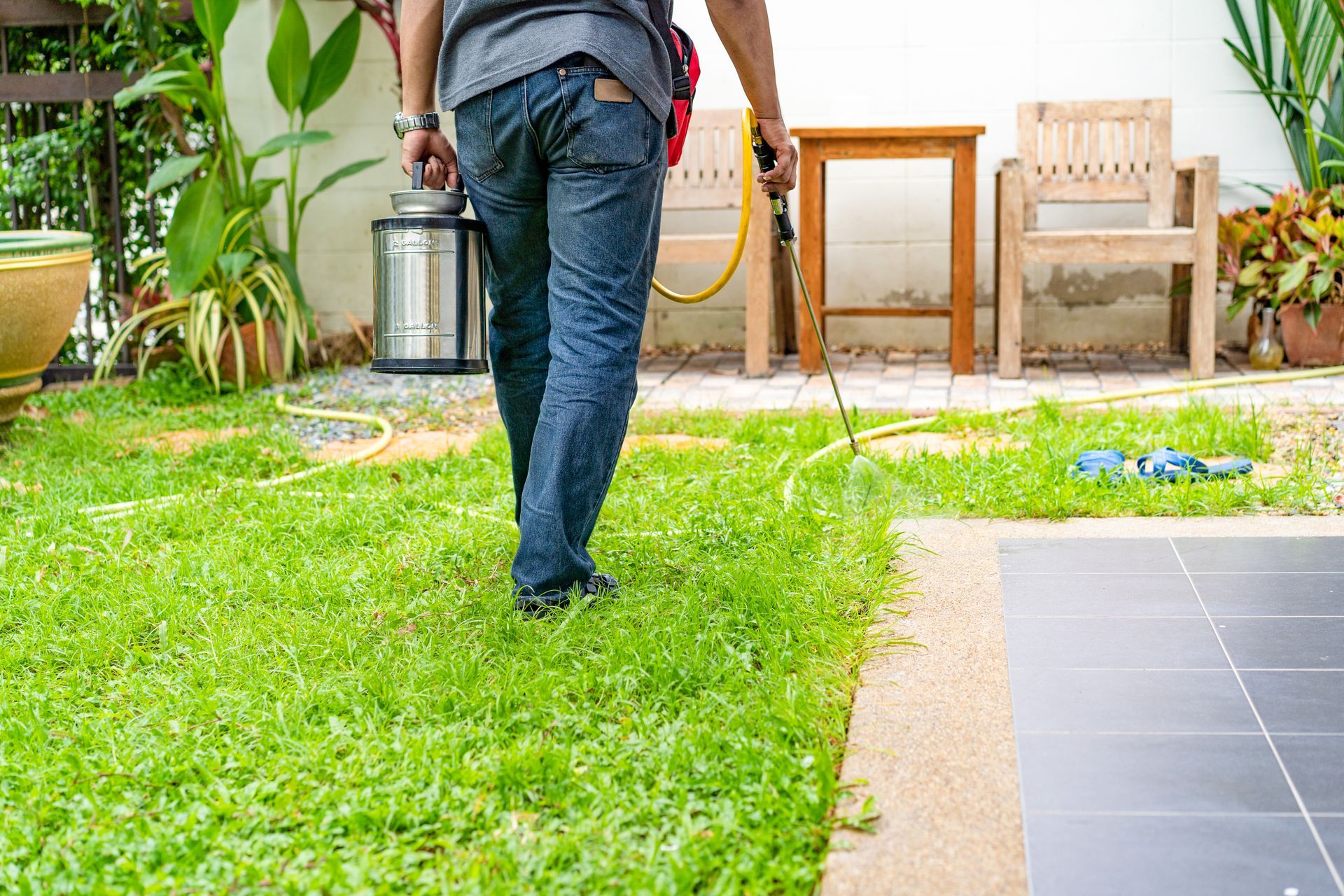Organic Pest Control Products: Myths and Facts
Organic pest control products have gained popularity among those seeking environmentally friendly and health-conscious solutions for pest management. There are numerous myths and misconceptions surrounding their effectiveness and safety.
Understanding Organic Pest Control
In a world that's increasingly seeking harmony with nature, organic pest control presents itself as an environmentally conscious alternative for maintaining our living spaces. Organic pest control utilizes natural ingredients and biological methods to keep pests at bay, minimizing the use of synthetic chemicals. Residents of the Reno-Carson City area, who cherish the natural beauty of their surroundings, find this approach particularly appealing. By focusing on non-toxic substances derived from plants, minerals, or other natural sources, organic products target pests without the collateral damage commonly associated with conventional pesticides.
Diverse in their makeup, these products range from essential oil blends that repel insects to predatory organisms that keep pest populations under control. Each solution is crafted to tap into nature's own mechanisms for pest management, aligning with the growing trend of sustainable living that resonates with families and pet owners across Nevada's communities.
Myths vs. Facts
Despite the popularity of organic options, several myths cloud their perceived effectiveness and safety. Let's debunk some common misunderstandings:
Myth: Organic products are not effective.
Contrary to this notion, numerous studies have highlighted the efficacy of organic pest control products. For instance, neem oil, a natural pesticide derived from the neem tree, has been documented as a robust deterrent against certain pests. What's more, diatomaceous earth, made from fossilized algae, is a potent desiccant that can protect homes from various crawling insects without harming the environment or non-target species.
Myth: Organic means completely safe.
It's important to understand that natural doesn't always mean harmless. While organic pest control products are generally safer for the ecosystem and human health, they must still be used with care and according to manufacturer guidelines. Essential oils, for example, can be toxic to pets or humans in concentrated forms, emphasizing the need for responsible application.
Dispelling myths not only clarifies misconceptions but also helps homeowners make better, informed choices for their families and the environment. As the narrative around organic pest control evolves, the facts will continue to empower residents in areas like North Valley, Spanish Springs, and the greater Reno region to protect their homes in an eco-friendly manner.
Environmental and Health Benefits
Transitioning to organic pest control is more than a mere change of products; it's a commitment to the well-being of our environment and our families. For the residents of Border Town, Carson City, and beyond, adopting green methods aligns with Nevada's broader conservation efforts. The ecological footprint of organic products is typically smaller—biodegradability and reduced toxicity mean less impact on the soil, water, and air we share.
Moreover, the health dividends are considerable. The absence of harsh chemicals in organic pest control remedies reduces exposure risks for children and pets who are more vulnerable to environmental toxins. In the lush landscapes of Lemmon Valley or the bustling communities of Sparks, this approach translates to a safer, healthier living environment where the delicate balance between human habitats and local wildlife is preserved.
Choosing the Right Organic Pest Control Product
Selecting the optimal organic pest control product for your Reno home involves considering several factors. One must assess the specific pest issue, the size and type of the area affected, and any sensitivities of the household inhabitants. Homeowners can seek assistance from professional pest control services, like those found within the Sun Valley and Spanish Springs area, to ensure choices that are both effective and aligned with local environmental values.
Understanding the labels and certifications on organic products is crucial. The Organic Materials Review Institute (OMRI), for example, lists products that are suitable for organic production. This ensures compliance with strict organic standards, offering peace of mind to homeowners seeking authentic eco-friendly solutions. (OMRI Certification).
When pondering options, it's essential to have reliable and clear resources. Tips from local experts become invaluable in differentiating truly organic pest control products from those merely marketed as ‘natural’. This discernment is vital for the environmentally conscious residents in communities where nurturing a sustainable ecosystem is a collective endeavor.
Criticisms and Controversies
As organic pest control products gain traction, they also attract scrutiny and debate. Homeowners in areas like Fernley and North Valley, driven by a passion for eco-friendly living, often find themselves in the midst of a discussion revolving around the effectiveness of organic methods compared to traditional ones. Critics argue that although organic products may be safer, they doubt whether these green solutions are potent enough to handle serious infestations.
There are also concerns about the regulation and certification of organic products. The ambiguity that sometimes surrounds the term "organic" can cause confusion and mislead consumers. This has prompted calls for more stringent standards and clearer labeling, to ensure that what's being marketed as organic truly adheres to established criteria for environmental safety and efficacy.
Common Mistakes in Using Organic Pest Control
A key part of responsible organic pest management is acknowledging its limitations and understanding its proper use. For residents of Panther Valley, Spanish Springs, and the surrounding Nevada communities, it's vital to be aware of the common mistakes that can undermine the benefits of organic pest control.
One typical error is the improper application of products. Natural insecticides still require careful handling and precise deployment. Overestimating the scope of certain organic solutions is another pitfall; not all products work on all pests, and misapplication can lead to ineffective results and, subsequently, frustration.
To fully reap the advantages of organic pest control, integrated pest management practices should not be neglected. This approach combines biological, cultural, physical, and chemical tools in a way that minimizes risk to the environment and health while ensuring that pest populations are kept in check.
These insights are shared not to dissuade but to promote a more knowledgeable application of organic methods—one that is honest about both its potential and its parameters. By doing so, we empower the individual not just to make greener choices, but to make greener choices that truly work for their homes and our shared natural spaces.
Additional Resources
For those who seek to deepen their understanding of organic pest control, a wealth of resources is available. Authoritative guides such as those provided by reputable environmental organizations offer comprehensive insights into the various natural methods and products one can use. Local workshops or seminars, which may pop up in civic centers in Carson City or community halls in Sparks, provide hands-on learning opportunities tailored to Nevada's unique environment.
These sessions not only foster greater community awareness but also encourage dialogue among homeowners about best practices that can enhance both the local ecosystem and personal living spaces. By staying informed and engaged, families in the Reno-Carson City area can contribute significantly to a collective effort for a healthier, more sustainable approach to pest management.
The journey toward a greener pest control routine is paved with continuous learning and adaptation. The rewards are invaluable—contributing to a legacy of environmental stewardship that will benefit current and future generations.
Whether you are new to organic methods or have been implementing them for years, remember that every choice towards eco-friendliness is a step in the right direction. As we navigate through the myriad of options available, let's move forward with purpose and mindfulness, knowing our actions today shape the world we live in tomorrow.
And for those looking for expert guidance and proven solutions within the Reno and Carson City area, consider reaching out to seasoned professionals who are dedicated to providing high-quality, eco-friendly pest control services. They can help make the transition to organic methods seamless and ensure that your home is protected in the most natural way possible.
For help or to learn more about organic pest control,
visit Natura Pest Control. They prioritize family safety and environmental stewardship, offering effective solutions tailored to your needs.



Call or chat with us today!
Nevada
5595 Equity Ave, Ste 650, Reno, NV 89502
1855 Sullivan Ln, Sparks, NV 89431, United States of America
Idaho

